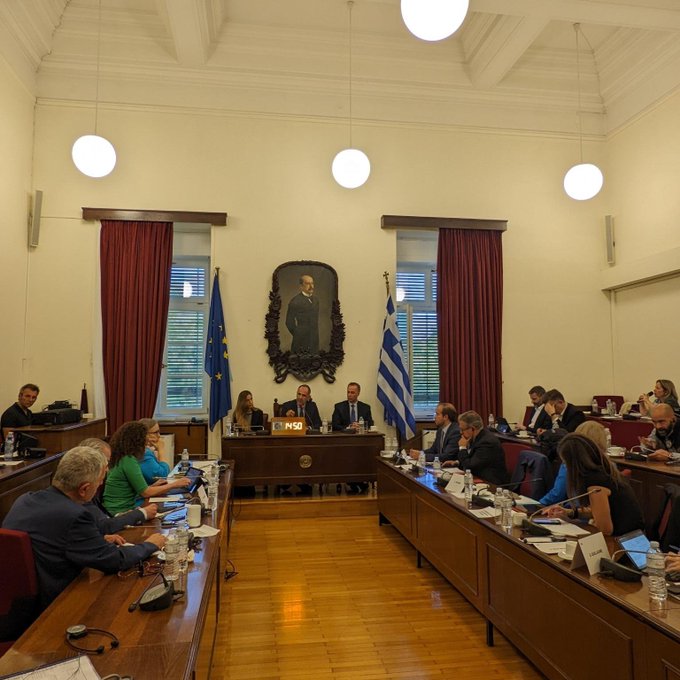From 1 to 4 November, MEPs from the Inquiry Committee investigating Pegasus and other spyware visited Cyprus and Greece.
During their visit to Cyprus, MEPs met with Minister for Energy, Commerce and Industry Natasa Pilides, other government officials, and members of the House of Representatives sitting on relevant committees to discuss the current legal framework for spyware. They also heard from legal experts, NGO representatives, and journalists who have presented the Committee with documentation as regards to surveillance and corruption.
In Greece, they sat down with investigative journalists working to uncover cases of spyware abuse, MPs of the Hellenic Parliament representing both the government and opposition that had served on the Parliament’s inquiry committee on illicit surveillance of the leader of the opposition party PASOK and MEP Nikos Androulakis (S&D, EL). In a meeting with Minister of State George Gerapetritis, MEPs also discussed high-profile surveillance cases and the larger context of media pluralism and the rule of law in Greece. During the visit, they also met with journalist Thanasis Koukakis and other prominent people targeted with spyware, President of the Hellenic data protection authority ADAE Christos Rammos, and NGOs and human rights defenders.
After the visit, Committee Chair Jeroen Lenaers (EPP, NL) said: “During our meetings in Cyprus and Greece, we had many fruitful exchanges with government representatives, journalists and civil society representatives. Although we did not find outright evidence of corruption, or the kind of authoritarian practises we witnessed in Poland and that are reportedly happening in Hungary, some more effort needs to be done to ensure transparency. Any allegations of abuse of surveillance have to be thoroughly investigated and necessary safeguards should be installed. I am glad that, unlike some other countries, the governments of Cyprus and Greece made effort to actively cooperate with the PEGA Committee, and responded to our questions. They shared their proposals for reforms that could bolster the fundamental rights of the citizens of Cyprus, Greece and the EU. In Greece, they will be subject of public consultation in the coming months. These reforms should improve transparency and ensure appropriate judicial oversight over the use of surveillance. We look forward to seeing concrete legislation and policies to be put in place.”
Rapporteur Sophie in ‘t Veld (Renew, NL) said: “After staying in Cyprus and Greece almost four days, we leave with perhaps more questions than we had when we arrived. We’ve heard worrying reports of journalists feeling unsafe when they write about important topics, of the supposedly independent data protection authority being put under pressure, and of national security used as blanket justification for spyware abuse and surveillance. It seems that spyware companies form a murky web of connections that may also extend to public authorities, even though EU laws on beneficial ownership registries were designed to shed light on such information. In the EU, we need clear rules for limiting the use of national security as grounds for surveillance, ensuring proper judicial oversight, and guaranteeing a healthy, pluralist media environment.”
You can watch the press conference at the conclusion of the mission here.
The MEP delegation consisted of Jeroen LENAERS (Committee Chair, Head of the Delegation – EPP, Netherlands); Sophia IN ‘T VELD (Rapporteur – Renew, Netherlands); Sylvie GUILLAUME (S&D, France); Juan Ignacio ZOIDO ÁLVAREZ (EPP, Spain); Elissavet VOZEMBERG-VRIONIDI (EPP, Greece); Thijs REUTEN (S&D, Netherlands); Róża THUN UND HOHENSTEIN (Renew, Poland); Saskia BRICMONT (Greens/EFA, Belgium); Stelios KOULOGLOU (the Left, Greece); and Lídia PEREIRA (EPP, Portugal).

